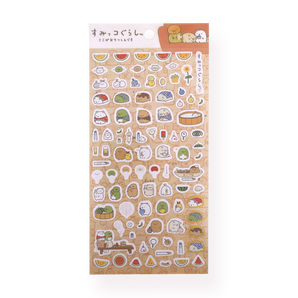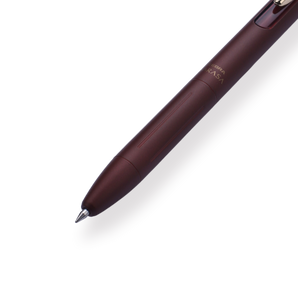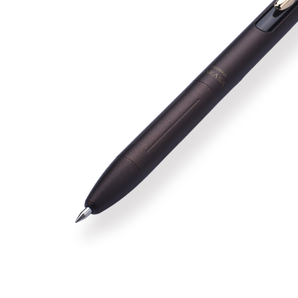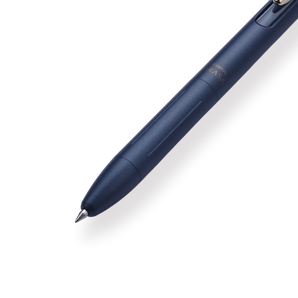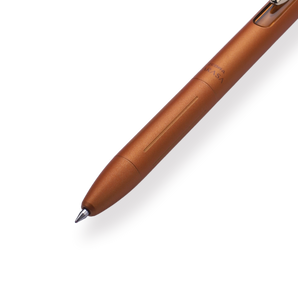Acne scars form when inflamed blemishes damage your skin’s tissue, often from picking or popping pimples. But you don’t need harsh treatments to improve your skin. With the right habits and natural remedies, you can reduce scars and boost healing—right from home.
1. Understand What Causes Acne Scars
Acne scars are more likely to appear after cystic acne, early-onset breakouts, or if acne runs in your family. Picking or popping blemishes increases your chances of long-term scarring. Preventing breakouts is key to preventing scars.
2. Keep Hands Off Your Face
Touching your face spreads bacteria and clogs pores. Always wash your hands or use sanitizer, and avoid squeezing pimples. Keep hair off your face to prevent oil buildup and breakout triggers.
3. Protect Skin From the Sun
Too much UV exposure can darken acne scars and make them harder to fade. Always wear SPF 30+ daily, even when indoors. Choose a sunscreen suited for acne-prone or sensitive skin.
4. Use Skin-Friendly Products
Choose non-comedogenic, paraben-free, and oil-free skincare. Avoid synthetic dyes (like E102 or E133), which can trigger breakouts and worsen scarring. Always wash off makeup before bed.
5. Quit Smoking
Smoking slows your skin’s healing process and reduces collagen production, which your skin needs to repair acne damage. It also causes fine lines and dull skin over time.
6. Reduce Stress Daily
Stress boosts cortisol, which triggers breakouts and inflammation. Combat it with yoga, meditation, journaling, or just listening to calming music. A calmer mind supports clearer skin.
7. Prioritize Quality Sleep
Your skin heals while you sleep. Aim for 7–9 hours nightly in a cool, dark room. Avoid caffeine and screens before bed to support collagen production and skin renewal.
8. Move Your Body
Regular exercise lowers stress hormones and boosts circulation, helping your skin stay clear. Aim for 30–40 minutes of light activity or 10–15 minutes of high-intensity workouts daily.
9. Keep Things Clean
Dirty pillowcases and tight, sweaty clothes can trigger breakouts. Change your bedding weekly (or use a clean towel nightly), and clean your workout gear after each use.
Reducing acne scars naturally starts with consistent self-care, from what you apply to your skin to how you treat your body daily. With small habit shifts, you can help your skin heal and glow again—no pricey treatments needed.
Cleansing Your Skin
Want to fade acne scars naturally? Start with smart, gentle cleansing habits that won’t irritate your skin. These dermatologist-inspired skincare hacks use simple, science-backed ingredients you probably already have at home.
1. Choose a Gentle, Non-Soap Cleanser
Skip harsh chemicals! Go for non-soap, organic cleansers that are free from sulfates and parabens—perfect for sensitive, acne-prone skin. Look for “oil-free” and “non-comedogenic” on the label.
Quick tip: On busy days, use non-abrasive, oil-free facial wipes. For a DIY toner, steep green tea, cool it, and swipe with a cotton pad to soothe inflammation and balance oil.
2. Master the Right Face-Washing Technique
How you wash matters just as much as what you use.
-
Wash hands first to avoid transferring bacteria.
-
Use lukewarm water to prep your skin.
-
Gently massage cleanser in circular motions for 3–5 minutes.
-
Rinse with cool water and pat dry (never rub!).
Limit face washing to twice daily—morning and night—and always after sweating.
3. Try Milk for Natural Exfoliation
Full-fat milk is rich in lactic acid, which gently exfoliates and brightens skin while helping to fade dark marks. Apply with a cotton ball, massage, rinse, and pat dry.
Bonus tip: Coconut milk offers antibacterial benefits and works well for inflamed acne. For oily skin, add rice or gram flour for extra exfoliation.
4. Exfoliate with Dried Orange Peel
Orange peel powder is loaded with vitamin C and natural oils that repair and nourish skin while fading acne scars.
Grind dried peel, mix with milk or yogurt, and apply as a 15-minute face mask. Rinse to reveal smoother, more radiant skin.
5. Use Jojoba Oil as a Gentle Cleanser
Jojoba oil mimics your skin’s natural sebum—but won’t clog pores. It helps balance oil production and reduces breakouts.
Use 1–3 drops (5–6 for dry skin) on a cotton pad and swipe across your face. Bonus: It removes makeup, even eye makeup, without irritation.
Consistent use of these natural acne scar remedies can promote smoother, clearer skin over time. Just remember—be gentle, be patient, and always prioritize what works for your unique skin type.
Fade Acne Scars Naturally: Top Exfoliation & Moisturizing Tips
1. Gentle Exfoliation for Smoother Skin
Exfoliating removes dead skin cells, unclogs pores, and fades acne scars and dark spots. Use a gentle exfoliant suited to your skin type. Sensitive or dry skin? Limit exfoliating to 1–2 times a week. Oily skin? Once a day works. Try a soft microfiber cloth for light exfoliation—massage gently for 3–5 minutes and wash the cloth after every use.
2. DIY Sugar Scrub
Make a natural sugar scrub using ½ cup brown sugar, ⅓ cup coconut oil, 2 tbsp glycerin, and 2 tbsp sweet almond oil. Add a few drops of lemon or lavender essential oil for fragrance. Massage onto skin for 3–5 minutes, then rinse. Store in a jar for up to 3 weeks.
3. Oatmeal Face Scrub
Boil 1 tbsp organic oats in ¼ cup water, cool, then apply to your face. Let sit for 10–15 minutes before rinsing. Oatmeal is rich in antioxidants and has anti-inflammatory properties, making it perfect for sensitive skin.
4. Baking Soda Paste
Mix 1 tsp baking soda with water into a paste. Massage for 5 minutes, then rinse. For oily skin, add a drop of lemon juice. Avoid if you have inflamed or cystic acne.
5. Turmeric + Neem + Honey Mask
Mix turmeric powder, crushed neem leaves, and honey into a paste. Apply for 15–20 minutes, then rinse. This combo has antibacterial and anti-inflammatory properties to fight acne and lighten scars.
Moisturizing to Heal & Prevent Scars
1. Use Natural, Non-Comedogenic Moisturizers
Look for ingredients like aloe, green tea, calendula, oats, and chamomile. Choose formulas with alpha-hydroxy acids (AHAs) or hyaluronic acid to hydrate deeply and boost skin cell turnover.
2. Aloe Vera Gel
Aloe soothes inflammation, boosts cell regeneration, and helps fade scars. Apply regularly after cleansing or exfoliating.
3. Calendula Ointment
Calendula stimulates skin healing and collagen production. Use a 2–5% ointment up to 4 times a day. You can also make a calendula tea rinse with dried florets.
4. Virgin Coconut Oil
Apply 1–2 drops of organic, cold-pressed coconut oil twice daily. It’s rich in vitamin E and fatty acids that hydrate and repair the skin. Oily skin? Use sparingly—just 1–2 times a week.
5. Avocado Mask
Mash 1 ripe avocado and apply for 10–15 minutes. Rinse with cool water. Packed with vitamins A, C, and E, avocado nourishes skin and encourages collagen production.
6. Raw or Manuka Honey
Spread a thin layer of raw honey (or Manuka for maximum effect), cover with a bandage overnight or rinse after 15–20 minutes. Its antibacterial and healing properties promote scar fading.
Additional Treatments for Acne Scar Removal
1. Salicylic Acid Peel
This beta-hydroxy acid exfoliates, treats acne, and fades dark spots—especially effective for deeper skin tones. Available in dermatology clinics or over-the-counter kits.
2. AHA & BHA Gel
Alpha and beta hydroxy acids gently exfoliate and reduce wrinkles, discoloration, and acne scars. Avoid concentrations above 20%. Apply up to twice daily.
3. Apple Cider Vinegar Peel
Mix ½ cup ACV, ¼ cup baking soda, ¼ cup sea salt, ½ cup honey, and 5–10 drops tea tree or calendula oil. Apply for 5–10 minutes, then rinse. Use daily for 1 week.
4. Onion Extract Gel
Onion extract reduces inflammation, lightens pigmentation, and speeds up healing. Apply daily for 4–10 weeks. You can buy it or make your own puree.
5. Sea Silt Mask
Sea silt contains minerals, fatty acids, and algae that gently exfoliate and improve skin texture. Use 2x a week. Avoid if you have dry, sensitive skin or active breakouts.
These natural and dermatologist-approved treatments can help fade acne scars, smooth skin texture, and prevent new breakouts—making your skincare routine both effective and clean.












